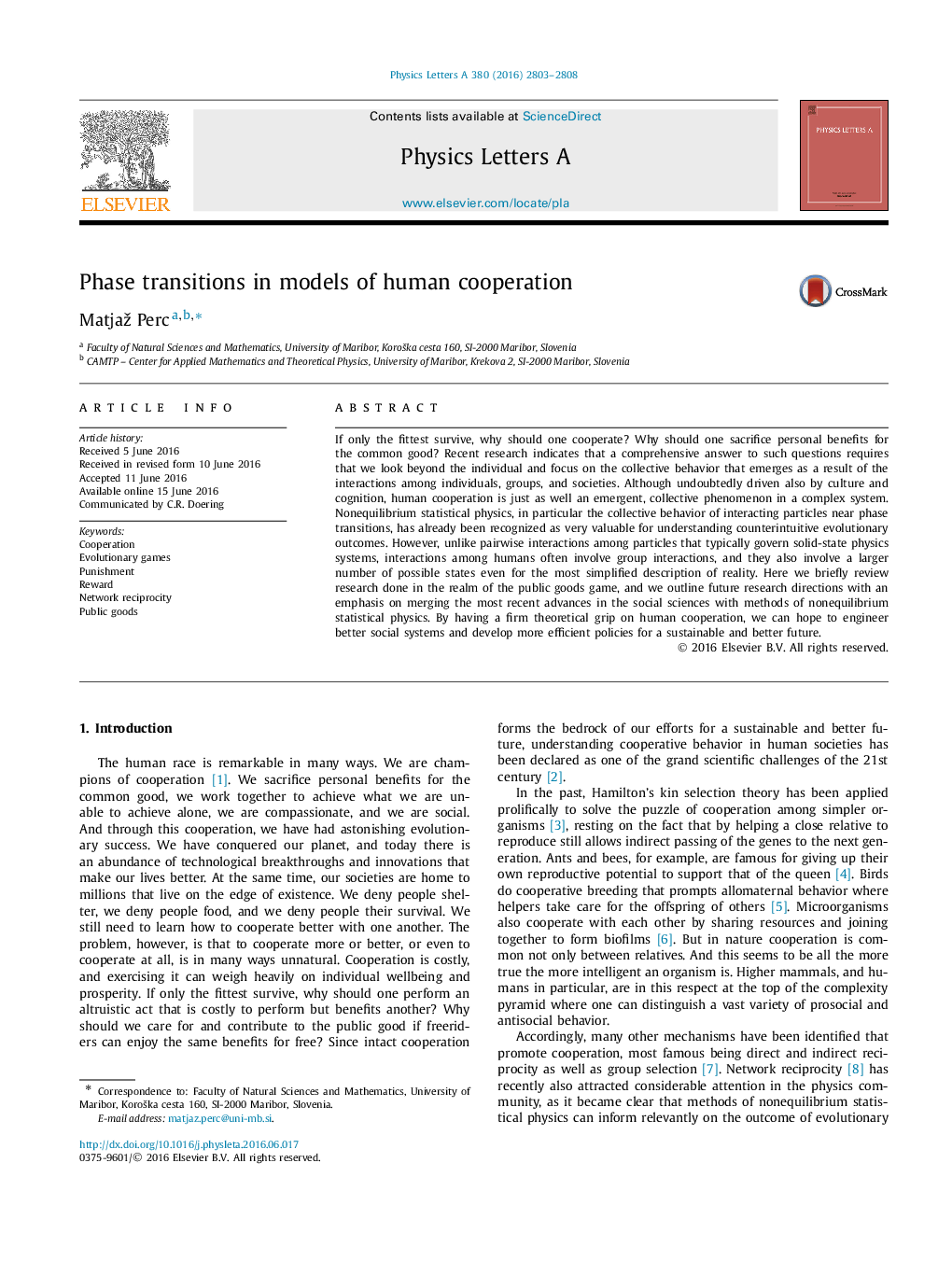| کد مقاله | کد نشریه | سال انتشار | مقاله انگلیسی | نسخه تمام متن |
|---|---|---|---|---|
| 1858871 | 1037172 | 2016 | 6 صفحه PDF | دانلود رایگان |
• We provide a perspective on models of human cooperation from the viewpoint of statistical physics.
• A null model for human cooperation is presented.
• Extensions of the null model and examples of phase transitions are briefly reviewed.
• Progress in related fields is discussed in the light of its importance for models of human cooperation.
• Directions for future research in the realm of statistical physics of evolutionary games are outlined.
If only the fittest survive, why should one cooperate? Why should one sacrifice personal benefits for the common good? Recent research indicates that a comprehensive answer to such questions requires that we look beyond the individual and focus on the collective behavior that emerges as a result of the interactions among individuals, groups, and societies. Although undoubtedly driven also by culture and cognition, human cooperation is just as well an emergent, collective phenomenon in a complex system. Nonequilibrium statistical physics, in particular the collective behavior of interacting particles near phase transitions, has already been recognized as very valuable for understanding counterintuitive evolutionary outcomes. However, unlike pairwise interactions among particles that typically govern solid-state physics systems, interactions among humans often involve group interactions, and they also involve a larger number of possible states even for the most simplified description of reality. Here we briefly review research done in the realm of the public goods game, and we outline future research directions with an emphasis on merging the most recent advances in the social sciences with methods of nonequilibrium statistical physics. By having a firm theoretical grip on human cooperation, we can hope to engineer better social systems and develop more efficient policies for a sustainable and better future.
Journal: Physics Letters A - Volume 380, Issue 36, 19 August 2016, Pages 2803–2808
